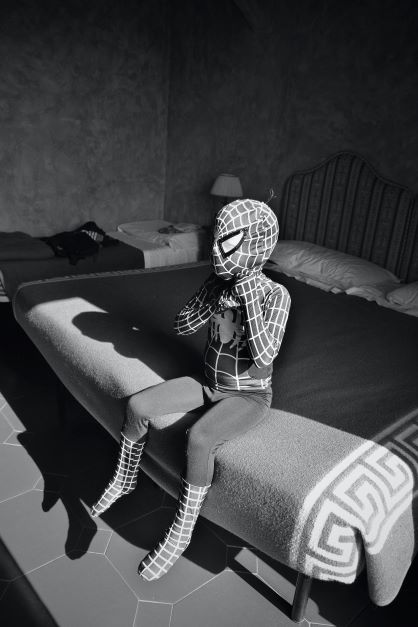An article about to be published in the the Journal of Pediatrics is titled, “Decline in Independent Activity as a Cause of Decline in Children’s Mental Wellbeing: Summary of the Evidence.”
If that sounds like what we’ve been saying here forever — it is. But AT LAST is it being said in a PRESTIGIOUS JOURNAL read by thousands of pediatricians.
The authors are three big names in child development: David Lancy from the Dept. of Anthropology at Utah State, David Bjorklund at the Dept. of Psychology, Fla. State, and our own Peter Gray, a professor in the Dept. of Psychology and Neuroscience at Boston College — and a co-founder of Let Grow.
We keep taking away kids’ freedom as if it’s no big deal. Their mental health says otherwise.
The journal piece summarizes a wide swath of evidence showing that a major (but not sole) cause of the increase in anxiety, depression, and suicidal thoughts among young people over recent decades has been the continuous decline in opportunities for them to play and roam independent of adults.
Reversing this trend — stat! — is key, as “children who have more opportunities for independent activities are not only happier in the short run, because the activities engender happiness and a sense of competence, but also happier in the long run, because independent activities promote the growth of capacities for coping with life’s inevitable stressors.”
The piece is already drawing attention. Emily Oster, author of popular books on data-driven parenting including “Expecting Better,” writes in her substack that indeed, it is indisputable that kids are less free, and less trusted to be competent, responsible, resourceful young adults than they were in the ’80s:
The truth-telling of “The Babysitters Club.”
You can see this even in something like The Baby-Sitters Club. The seventh graders in these books — published from 1986 to 2000 — are babysitting for young infants, including at night, making dinner, cleaning the house, and so on. The feel of the world is somewhat different than what many of us experience with our children now.
Emily Oster
Why are trust, responsibility, and independence so crucial to kids’ mental health?
Because that’s how you get a sense of what you can handle, and of who you are in the world: A competent, growing person — not a baby or a bonsai tree.
Kids need SO MUCH MORE independence than we’re giving them.
Think about a time you were trusted by your parents or another adult to do something without them — come home by dinner, run an errand, walk your sister to school…
That’s a milestone we don’t SEE as a milestone, because it seems so…minor. But those are the milestones that mark the path to maturity. Take them away, and kids are stuck in baby mode, feeling helpless and needy.
And depressed and anxious.
The Journal of Pediatrics article talks about how important it is to have an “internal locus of control” — a sense that you can make things happen, and deal with problems that arise. An “external locus of control” — as I think you can guess — is the feeling that someone or something else is in the driver’s seat. (And you’re in a 5-point harness.)
Our culture accidentally has swapped out childhood freedom and responsibility for adult-run activities. We thought we were eliminating risk, and making them happy.
We went too far.
What to do now:
The article concludes that “concern for children’s safety and the value of adult guidance
needs to be tempered by recognition that children need ever-increasing opportunity
to manage their own activities.”
How?
Well, individual parents can re-assess whether perhaps they are being almost “too helpful” when their kids are ready to do more themselves. Pediatricians can explain to parents that a risk-free life carries huge risks of its own. Schools can create more independent kids by assigning The Let Grow Project (kids get the homework, “Go home and do something new, on your own”) and starting Let Grow Play Clubs, so kids get free, unstructured, no-devices play time back in their lives.
And anyone so inclined can help us get more “Reasonable Childhood Independence” laws passed. These say giving your kids some unsupervised time isn’t neglect unless you put them in obvious danger. Four states down — plenty more to go!
The message through all of this — including, now, a peer-reviewed journal article — is simple: When adults step back, kids step up.
Photo by mali desha on Unsplash



